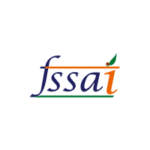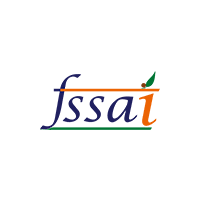FSSAI?
The Food Safety and Standards Authority of India (FSSAI) is an autonomous body established under the Ministry of Health & Family Welfare, Government of India. It is responsible for protecting and promoting public health through the regulation and supervision of food safety.
Key Functions of FSSAI:
1.Regulation and Supervision:
- Standards Setting: FSSAI formulates standards and guidelines to ensure the safety and quality of food products.
- Licensing and Registration: It oversees the licensing and registration of food businesses to ensure compliance with food safety norms.
2.Inspection and Enforcement:
- Monitoring: FSSAI monitors the manufacture, processing, distribution, sale, and import of food to ensure compliance with food safety standards.
- Inspections: Regular inspections and audits of food establishments are conducted to check adherence to food safety standards.
- Enforcement: It has the authority to enforce food safety laws and take action against violators, including recalls, bans, and legal proceedings.
3.Research and Development:
- Research: FSSAI conducts and promotes research on food safety, nutrition, and related areas to develop new standards and policies.
- Innovation: Encourages innovation in food safety practices and the development of new food products that are safe and nutritious.
4.Public Awareness and Training:
- Education: Conducts campaigns to educate the public about food safety, nutrition, and hygiene.
- Training: Provides training and capacity-building programs for food businesses, food handlers, and enforcement officials.
5.Collaboration and Coordination:
- International Cooperation: Works with international organizations and other countries to harmonize food standards and practices.
- Inter-agency Coordination: Collaborates with other governmental and non-governmental organizations to ensure comprehensive food safety measures.
Structure of FSSAI:
- Chairperson and Members: The authority is headed by a Chairperson and comprises various members representing different ministries and stakeholders.
- Central Advisory Committee: Provides a platform for collaboration and coordination among stakeholders.
Scientific Panels and Committees: Specialized panels and committees are formed to address specific areas such as contaminants, additives, packaging, and labelling.
Key Regulations under FSSAI:
- Food Safety and Standards (Food Products Standards and Food Additives) Regulations: Defines standards for food products and permissible limits for additives.
- Food Safety and Standards (Packaging and Labelling) Regulations: Specifies requirements for food packaging and labelling to ensure consumer information and safety.
- Food Safety and Standards (Contaminants, Toxins, and Residues) Regulations: Sets limits for contaminants, toxins, and residues in food products to ensure they are safe for consumption.
- Food Safety and Standards (Prohibition and Restriction on Sales) Regulations: Lists prohibitions and restrictions on the sale of certain food items to protect public health.
Importance of FSSAI:
- Consumer Protection: Ensures that consumers receive safe, hygienic, and nutritious food.
- Food Industry Regulation: Provides a regulatory framework for the food industry to operate in a safe and standardized manner.
- Public Health: Contributes to public health by preventing foodborne illnesses and ensuring the availability of safe food.
- Market Access: Facilitates domestic and international trade by aligning Indian food standards with global standards.
FSSAI plays a critical role in maintaining food safety and standards in India, ensuring that food products are safe for consumption and meet quality standards.


